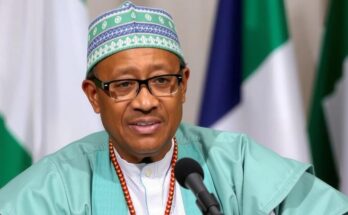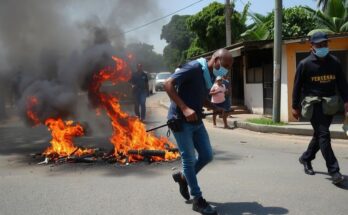Daniel Chapo from the ruling Frelimo party has won Mozambique’s presidential election with 70.67% of the votes. His main opponent, independent candidate Venancio Mondlane, received 20.32%. The elections were marred by allegations of vote manipulation and electoral fraud, with the EU observer mission reporting serious irregularities. Chapo becomes the first president born post-independence, succeeding Filipe Nyusi, who has reached his term limit.
The Mozambican National Electoral Commission (CNE) has officially declared Daniel Chapo, representing the ruling party Frelimo, as the winner of the country’s presidential election held on October 9. The election results indicated that Mr. Chapo secured 70.67% of the votes, significantly leading over his closest rival, Venancio Mondlane, an independent candidate, who garnered 20.32%. Ossufo Momade, the candidate from the opposition party Renamo, finished third with 5.81% of the total votes cast. At 47 years of age, Mr. Chapo becomes a historical figure as the first president of Mozambique born post-independence from Portugal, which occurred in 1975. Despite the victory, Mr. Mondlane, supported by the Podemos party, has made claims of winning the election. Observers noted a sense of desolation in Maputo, the capital, leading up to the announcement of the election results. Additionally, the European Union’s observer mission raised concerns, stating that some of its personnel were barred from monitoring the vote counting process in certain regions, and that there were instances of “unjustified alteration” of results recorded at specific polling stations. These allegations of electoral fraud and manipulation have been persistent against Frelimo, a claim which the party has consistently refuted. This election also encompassed votes for parliament and provincial governors, marking a significant political event in the impoverished nation as it transitions from the incumbent President Filipe Nyusi, who has reached his term limit.
The backdrop to this election is steeped in a long history of political tension in Mozambique, where Frelimo has maintained power since the country gained independence from Portugal in 1975. Over the years, allegations of electoral fraud and manipulation have surfaced, particularly from opposition groups seeking to challenge Frelimo’s dominance. The recent elections were conducted amid accusations of vote rigging and a lack of transparency in the electoral process by both local and international observers, highlighting the ongoing challenges in the country’s political landscape. The role of the opposition, particularly the Renamo party, as well as civil society organizations, is pivotal in contesting the ruling party’s narrative and seeking electoral reform.
In conclusion, the election of Daniel Chapo as the new president of Mozambique underscores the enduring control of the Frelimo party within the nation’s political sphere. While Mr. Chapo’s electoral success marks a significant generational shift, the fallout from allegations of electoral fraud continues to overshadow the democratic processes in Mozambique. The challenges posed by opposition claims and the EU’s concerns regarding the validity of the electoral process may shape the political dynamics in the coming years, especially as Mozambique endeavors to develop its governance structures and improve transparency.
Original Source: www.dw.com



